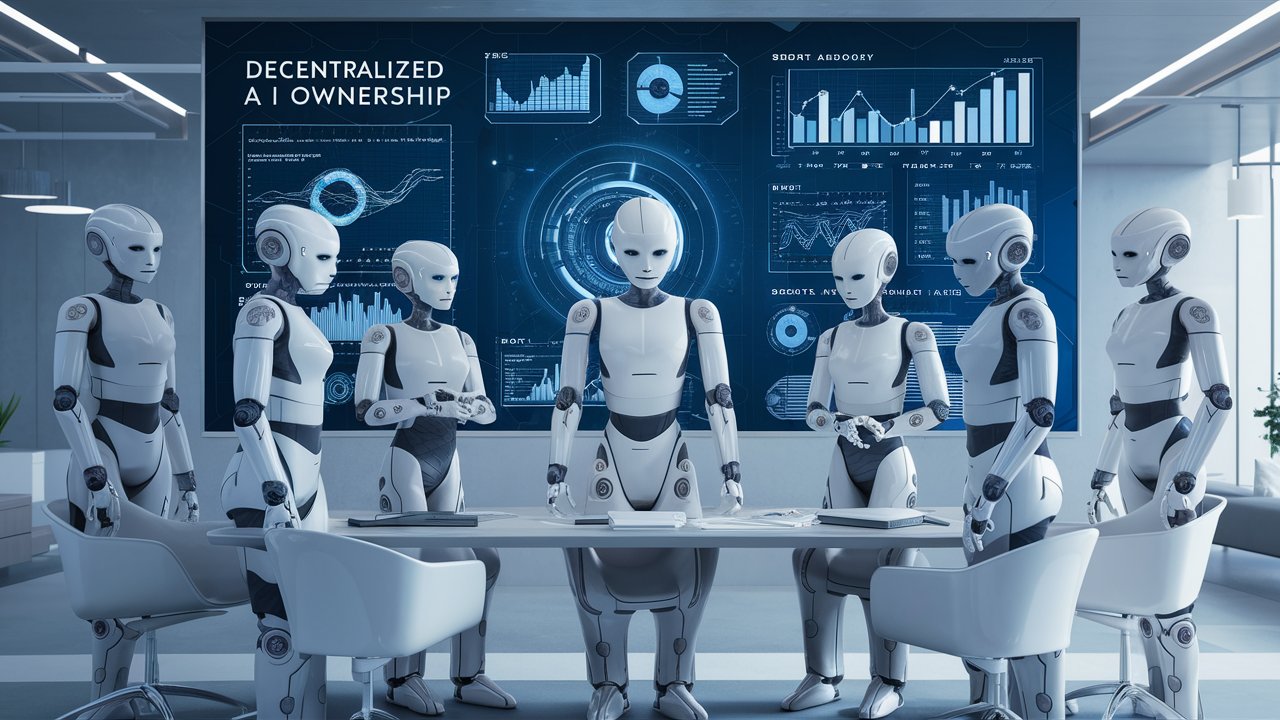Decentralized AI ownership is a concept gaining traction due to its potential to democratize the development and deployment of AI technologies. Here are some of the key benefits:
1. Enhanced Privacy and Security
- Data Control: Users retain control over their data, reducing the risk of data breaches and unauthorized access.
- Security: Distributed networks are often more secure against cyber-attacks compared to centralized systems, as there is no single point of failure.
2. Increased Transparency
- Accountability: Decentralized AI systems can provide greater transparency in decision-making processes, as the algorithms and data sources can be audited by anyone with access.
- Trust: Users and stakeholders can have greater trust in the system due to the open and verifiable nature of the operations.
3. Reduced Monopolistic Power
- Competition: Decentralization can reduce the dominance of large tech companies in the AI space, fostering more competition and innovation.
- Access: Smaller companies and individual developers can access and contribute to AI systems, leveling the playing field.
4. Innovation and Collaboration
- Collaborative Development: Decentralized platforms can encourage collaborative development, with contributors from around the world improving and expanding AI capabilities.
- Diverse Perspectives: The inclusion of diverse perspectives can lead to more robust and unbiased AI models.
5. Economic Incentives
- Tokenization: Decentralized AI networks can utilize blockchain technology to tokenize contributions, allowing developers and data providers to be compensated fairly.
- Decentralized Finance (DeFi): Integration with DeFi can provide funding opportunities for AI projects, enabling more projects to come to fruition.
6. Resilience and Reliability
- Fault Tolerance: Distributed systems are inherently more resilient to failures, as the system can continue to function even if some nodes go offline.
- Scalability: Decentralized networks can scale more easily than centralized ones, accommodating growing numbers of users and data without significant performance degradation.
7. Ethical AI Development
- Democratized Governance: Decentralized systems can implement democratic governance models, allowing stakeholders to have a say in the development and ethical considerations of AI technologies.
- Bias Reduction: With broader participation, there’s a better chance to identify and mitigate biases in AI systems.
8. Regulatory Compliance
- Global Standards: Decentralized systems can adapt more readily to varying regulatory requirements across different regions.
- Self-Regulation: Communities can establish and enforce their own standards and best practices, potentially leading to more agile and effective compliance mechanisms.
Conclusion
Decentralized AI ownership offers numerous benefits that can address many of the current challenges associated with centralized AI systems. By promoting privacy, transparency, and inclusivity, it paves the way for a more equitable and innovative AI ecosystem. However, it also presents new challenges, such as the need for robust governance models and the potential for coordination problems, which need to be carefully managed.





